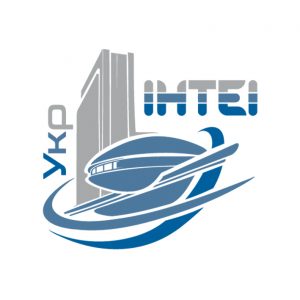http://doi.org/10.35668/2520-6524-2022-4-11
Ihnatsevych S. P. — PhD of Economic Sciences, Senior Researcher of State Scientific Institution “Ukrainian Institute for Scientific Technical Expertise and Information”, Antonovycha Str, 180, Kyiv, Ukraine, 03150; ignatsevichserg@ukrintei.ua; ORCID: 0000-0002-0401-4325
COMMERCIALIZATION OF INNOVATIVE TECHNOLOGIES IN UKRAINE. MAIN PROBLEMS AND FOREIGN EXPERIENCE
Abstract. The innovative activity not only gives enterprises the opportunity to increase the amount of income from economic activity. In the long term, the introduction of innovative technologies into production is almost the only way for a business to continue its existence. And the most effective indicator of the emergence and development of innovative technologies is their high potential for commercialization. The article examines the difference between the concepts of “commercialization” and “transfer”, classifies the main problems of commercialization of innovative technologies in Ukraine, examines the experience of Poland in the operation of technological parks in the country and their influence on the level of commercialization of innovative technologies. The advantages and disadvantages of such an approach to increasing the level of commercialization of technologies and whether technological parks are able to solve the main problems of commercialization in Ukraine are emphasized.
Keywords: innovative activity, technology transfer, commercialization, technology parks, foreign experience.
REFERENCES
- Balanchuk, I. S., & Mykhalchenkova, O. Ye. (2021). Tekhnolohichni platformy u sferi innovatsii – trendy v Yevropi ta Ukraini [Technological Platforms in the Field of Innovation – Trends in Europe and Ukraine]. Nauka, Tekhnolohii, Innovatsii – Science, Technologies, Innovations. http://doi.org/10.35668/2520-6524-2021-2-03 [in Ukr.].
- Volosheniuk, L. V., Hornostai N. I., & Mykhalchenkova O. E. (2020). Innovatsiina ekosystema: poniattia, funktsii, rivni innovatsiinoho rozvytku, pryklady [Innovation ecosystem: concepts, functions, levels of innovation development, examples]. Nauka, Tekhnolohii, Innovatsii – Science, Technologies, Innovations. http://doi.org/10.35668/2520-6524-2020-1-01 [in Ukr.].
- Liashenko, O. M. (2009). Metody ta modeli komertsializatsii transferu tekhnolohii [Methods and models of technology transfer commercialization]: Doctor’s thesis. Kyiv: State Institution “Institute of Economіcs and Forecasting of the National Academy of Sciences of Ukraine” [in Ukr.].
- Lykholet, S. I. (2016). Transfer tekhnolohii yak element tekhnolohichnoho onovlennia promyslovykh pidpryiemstv [Technology transfer as an element of technological updating of industrial enterprises]. Ekonomika ta derzhava – Economy and State. Retrieved from: http://www.economy.in.ua/pdf/1_2016/12.pdf [in Ukr.].
- Lanovskaya, G. I. (2017). Innovatsiina ekosystema: sutnist ta pryntsypy [Innovative ecosystem: essence and principles]. Ekonomika i Suspilstvo – Economy and society. Retrieved from: http://www.economyandsociety.in.ua/journals/11_ukr/43.pdf. [in Ukr.].
- Günsel, A. (2015). Research on Effectiveness of Technology Transfer from a Knowledge Based Perspective. Procedia – Social and Behavioral Sciences. https://doi.org/10.1016/j.sbspro.2015.10.165.
- Tylżanowski, R. (2017). Wielkość przedsiębiorstwa a procesy transferu technologii w przemyśle wysokiej techniki w Polsce [The size of enterprise and technology transfer processes in hightech manufacturing sector in Poland] Studia i Prace WNEIZ US [Studies and Work WNEIZ US]. https://doi.org/10.18276/sip.2017.48/3-27.
- Dutta, S. (2020). Global Innovation Index 2020. Who Will Finance Innovation? [Electronic resource]. Ithaca – Fontainebleau – Geneva. Retrieved from: https://www.wipo.int/edocs/pubdocs/en/wipo_pub_gii_2020.pdf.
- Kamianska, O. V. (2008). Upravlinnia transferom tekhnolohii na mashynobudivnykh pidpryiemstvakh [The organization of technology transfer at the industrial enterprises]. Extended abstract of candidate’s thesis. Kyiv [in Ukr.]
- Kashchuk, K. M. (2012). Transfer innovatsiinykh tekhnolohii: sutnist ta znachennia u rozvytku vitchyznianoi ekonomiky [Трансфер інноваційних технологій: сутність та значення у розвитку вітчизняної економіки] [Electronic resource]. Zbirnyk naukovykh prats Tavriyskoho derzhavnoho agroekolohichnoho universytetu (economichni nauky) – Scientific papers of Tavria state agrotechnological university (economic sciences). Retrieved from: http://ir.znau.edu.ua/bitstream/123456789/4262/3/Znptdau_2012_2_199_208.pdf [in Ukr.].
- Świadek, A. (2018). Sales range and innovative activity in the manufacturing system of Poland. Equilibrium. Quarterly Journal of Economics and Economic Policy. https://doi.org/10.24136/eq.2018.035
- Risdon, P. (1992). Understanding the Technology Transfer Process. Vita Distribution Service. University of Pennsylvania. Retrieved from: http://www.africa.upenn.edu/Comp_Articles/Technology_Transfer_12764.html
- Marszałek, A. (2018). Parki naukowo-technologiczne jako odpowiedź na pojawiające się wyzwania ekonomiczne [Science and technology parks as a response to economic challenges] Rozwój regionalny i polityka regionalna – Regional development and regional policy. Retrieved from: https://pressto.amu.edu.pl/index.php/rrpr/article/view/16532/16372.
- United Nations Conference on Trade and Development (2001). “International Arrangements on Transfer of Technology: Selected Instruments. Compendium”, United Nations publication, Geneva, Switzerland.
- Takakuwa, S. (2013). Technology transfer and world competitiveness. Proc Eng. https://doi.org/10.1016/j.proeng.2014.02.211.
- Dąbrowska J. (2011). Measuring the success of science parks: performance monitoring and evaluation. Manchester: Manchester Science Park. Retrieved from: https://www.cmimarseille.org/sites/default/files/newsite/manupls/pdf4.pdf.
- Kwieciński, L. (2018). Polskie parki technologiczne – w stronę IV generacji parków technologicznych. Wstępne wyniki badań terenowych [Polish technology parks: Towards the 4th generation parks. Preliminary results of an empirical study]. Zarządzanie Publiczne [Public Governance]. Retrieved from: http://cejsh.icm.edu.pl/cejsh/element/bwmeta1.element.desklight-b1cdd80a-a51a-4912-bc9f-a41052e2c5ee.
- Mażewska, M. (2019). Raport z badania parków technologicznych 2019 [Report on the research of technology parks 2019] Warszawa: Stowarzyszenie Organizatorów Ośrodków Innowacji i Przedsiębiorczości w Polsce. Warsaw. Retrieved from: https://www.sooipp.org.pl/file/P7C3S590i0n0u1Y6L2o1s661o0C4C0h8/2019-raport-z-badania-parkow-technologicznych-w-polsce-pdf.pdf.
- Protasiewicz,.0 A. (2020) The Role of Institutions in the Technology Transfer Process with Particular Focus on Technology Parks in Poland. Eastern European Journal of Transnational Relations. https://doi.org/10.15290/eejtr.2020.04.02.03

